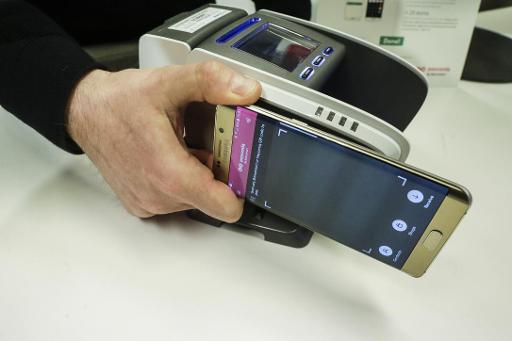Banking and payment applications are increasingly popular in Belgium, with a 24% increase in the number of people using them over the past one and a half years, according to reports.
Young people in particular went along with the new technology much more readily than older generations, it was reported on Tuesday by the Observatoire Bancontact Payconiq Company.
In 2017, when a previous monitoring exercise was undertaken, only 55% of Belgians had installed a banking or payment application on their smartphones or tablet PCs. Today, nearly seven out of ten smartphone users (68%) said they had downloaded at least one, which means an increase of 24% in one and a half years.
Young people went along with the new technology much more readily, according to an online survey sampling 1,000 Belgians carried out by consulting firm iVOX. Amongst people under the age of 35, 83% went out with a banking or payment application in their pockets. In the 55-and-over age group, this percentage fell to 60%.
Furthermore, the majority of Belgians made real use of these applications. Among those installing Payconiq's by Bancontact, more than eight out of ten (85%) used it to make payments, a percentage figure reaching 89% in the case of banking applications. These figures have doubled in comparison to 2017.
Contactless payments were also taking off. Nearly all Belgians (96%) had heard of them and 32% used them at one time or another, four times more than a year and a half ago (8%). The degree of confidence in mobile and contactless payments had not however yet reached the level enjoyed by traditional means of payment, the Observatory stated. Just over half of Belgians (51%) accordingly have the impression that these methods are less secure than cash or card payments.
The transition to mobile and contactless payments was therefore on course, but progressing more slowly than in other countries, Bancontact Payconiq Company continued. The phenomenon was due to the efficiency and very good integration of card payments in Belgium. Nearly all Belgians (96%) said they were in fact satisfied with their pin-secured cards, in which they had every confidence (97%).
The days of the physical wallet are therefore numbered, going by the Observatory's conclusions, and the Belgians would embrace the move towards digital payments all the same, according to the study. Nearly four out of ten people surveyed (37%) supported the idea of a cashless society in which paper money would be redundant. Whether or not they agreed with the concept, nearly a third of Belgians (32%), expect physical money to have disappeared from their wallets within ten years.
The Brussels Times

